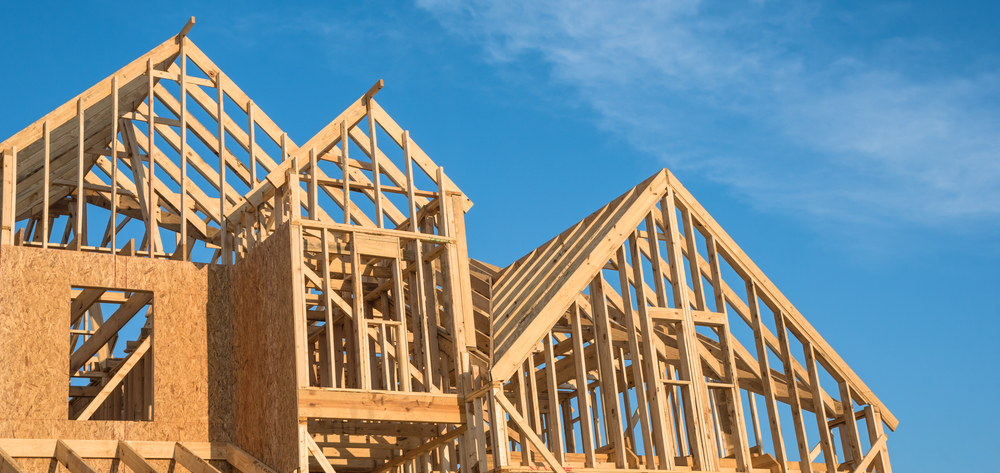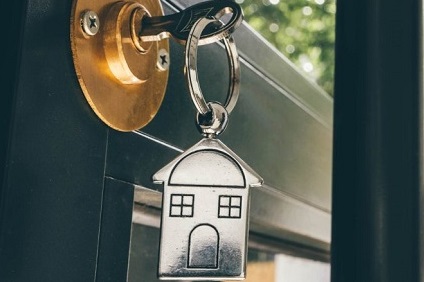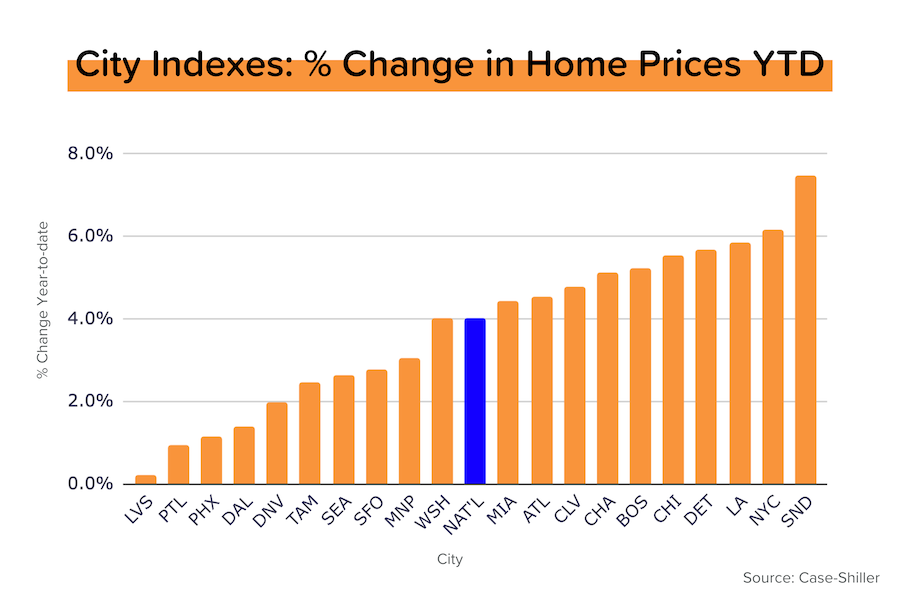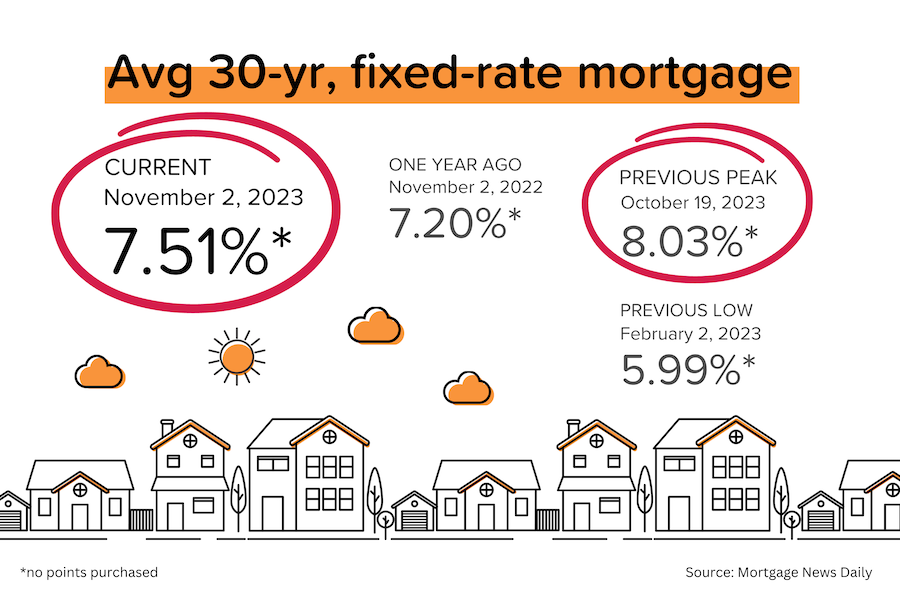How Contingent Offers Are Used in Real Estate
Contingencies offer a way to protect both the buyer and seller in a real estate transaction. The homebuying process requires a series of steps and at any time in that journey, unexpected issues may arise that neither party was prepared for. Contingent offers act as a guide for when these problems present themselves and instruct either party on what they can expect next. Sometimes, the issues can be remedied through re-negotiation. Other times, deals fall apart when they fail to follow the contingency guidelines.
Most Common Contingencies Found in Real Estate
In real estate, there are distinct types of contingencies and, as a buyer, you decide which ones apply to your situation while also taking the condition of the real estate market into account. You should also consider your real estate agent’s expertise when drafting your contract. Here are the five most common contingencies you may use during your homebuying process.
Home Inspection Contingency
Home inspection contingencies predicate the sale or sale price of the home on the findings of a licensed home inspector. The inspector will visit the property and examine the more important parts of the home such as safety features, foundation and roofing, major systems (i.e., electrical and plumbing), and even the facade. Many buyers either can’t see or don’t think about these things during the process.
If the inspection uncovers problems or flaws that are in the contract, the buyer can either rescind their offer or negotiate with the seller to remediate the problems. Sometimes, the seller will agree to make the repairs before the property is turned over to the buyer. Financial credits are another way that sellers and buyers work out a less than stellar inspection report. Either way, you don’t necessarily have to walk away from a home you like due to reparable flaws.
Mortgage Contingency
A mortgage contingency is often used when the buyer needs time to get financing to buy the property. The process of getting a mortgage can be a tumultuous journey, and it is not uncommon for buyers to believe they are on track for approval only to find at the last minute there was problem preventing them from securing financing.
One of the ways to avoid this hiccup is to make sure that you are preapproved for the mortgage and not just prequalified. Being “prequalified” requires little information to determine whether or not you’ll qualify for a mortgage. Being “preapproved,” on the other hand, requires a thorough evaluation of your financial status, including a credit check.
Keep in mind that although a preapproval is a positive step in obtaining a mortgage, life changes, such as a new job or a credit-based purchase such as a new car, can cause the metrics you were initially evaluated on to change and can cause a delay in finalizing the mortgage process.
Appraisal Contingency
Lenders do not offer home loans on properties that cost more than their appraised value. This is where an appraisal contingency factors into the mortgage process. Although you may feel that the home is worth the price the seller is asking, that home’s actual value could be drastically different. For the lender, it doesn’t matter if you and the seller come to terms on the price; after all, it’s their investment as well. The bank will require a third-party appraisal to determine the appropriate loan amount.
However, if you find yourself pining over a property that has appraised for more than the bank will lend, you still have options. You can offer to put down more of your own cash up front to close the gap between the mortgage amount and the purchase price of the home. You may also consider renegotiating the price with the seller based on the appraisal amount.
Title Contingency
Similar to used car purchases, homes need to have a “clean” title for the sale to go through. The title discloses who currently owns the home and ownership history. Some sellers may have had issues in the past with liens or other encumbrances that limit what they can do with their homes, including selling it. Buying a home that has claims against the title poses a substantial risk.
A title contingency protects the buyer because it requires that any claims or other title issues be cleared up before the sale of the property is completed. Even after the title is clear, buyers should get title insurance in case another title claim issue arises in the future.
Home Sale Contingency
A home sale contingency is put in place when the sale of the property is dependent upon the buyers selling their current home first. In a seller’s market, this type of contingency will likely be rejected because it’s basically asking the seller to risk an unknown when they could easily accept one of the other offers.
However, if you’re a buyer who needs to offload your current home before buying a new home, hope is not lost. Your lender may be willing to offer you a bridge loan. You can also try to ask for a closing date that will give you more time to sell your current home. It’s important to note that sellers who have their own timeline may not accept your proposed closing date. However, if the seller is in a similar situation where they are looking for a new home before selling their own, they may be more amenable to waiting.
What if a Real Estate Contingency is Not Met?
The homebuying process is based on contracts, and contingencies are a part of those contracts. So, when a contingency is not met, the contract may be considered void. Of course, before buyer and seller decide to go their separate ways, there could be room for more negotiating. For example, if a buyer fails to fulfill a mortgage contingency, the seller can dissolve the deal. But the seller and buyer may also agree to extend the buyer’s time to secure financing.
What Are the Pros & Cons of Contingent Offers?
Adding a contingency to your offer, if you choose to add one at all, is a personal decision. The market, type of property, and your personal situation can all be factors that drive your choice to add contingencies into your contract. Whether you add them or exclude them, the fact remains that they are in place to protect the parties’ interest. Let’s look at some of the pros and cons of either decision.
Cons: Some Things to Consider About Contingencies in Real Estate Offers
Seller Might Prefer an Offer with No Contingencies in Place
Contingencies are often put in place to protect the buyer from incurring certain financial losses, namely earnest money. Because of this, sellers may reject offers that come with contingencies. Keep in mind that sellers also consider the profit potential, and a list of contingencies could be more of a financial hit to their bottom line than they are willing to take.
In a seller’s market, adding contingencies is an even more risky proposition because sellers have myriad offers to consider and may decide to accept an offer that is more straightforward and requires no additional financial investment on their side (i.e., a request to repair a roof or repave a driveway). While you should never be afraid to ask for what you want in your contract, you should be aware that the longer the list of contingencies, the less likely it is your offer will be accepted by the seller.
Your Options Might Be Limited While Under a Contingency Clause
Placing a home sale contingency or any other contingency that causes the seller to wait on you can limit your homebuying options. A seller who is looking to offload their property in a certain time frame probably will not want to base the sale of their home on whether your current home sells due to unpredictability. If you must include this type of contingency, make sure you craft a stronger offer that may make the seller feel that the wait is worth it.
Might Overly Complicate the Entire Transaction
Contingencies are conditions that must be met before a transaction can be finalized. Therefore, adding these conditions inherently makes a straightforward process more complex. One contingency may be doable. But when multiple contingencies come into play, that means more people become involved in the transaction which can cause a lot of added stress to both buyer and seller.
Pros: Reasons Why You Might Want Contingencies in Your Offer
They Can Protect You & Your Real Estate Transaction
Contingencies protect you and the real estate transaction. Not setting certain conditions of the deal can open you to significant financial risks such as losing your earnest money or having to produce extra cash to remedy problems that could be covered by contingencies.
Buyers & Sellers Can Protect Their Investments Easier
While buyers and sellers are the stars of the homebuying show, each of the parties make other investments into the process; namely their time and assets. For sellers, contingencies may mean they lose out on the profit potential of their home. For buyers, contingencies can help avoid spending too much money and other resources on a home that may not live up to their expectations.
Ensures You’re Getting What You Want Out of the Deal
Although there is some give and take during the negotiation process, ideally, both the buyer and seller should walk away from the transaction satisfied and feeling as if they received a fair deal. Contingencies are a good way to make sure that nobody feels taken advantage of and that the investment, be it time or money, is protected.

 Facebook
Facebook
 X
X
 Pinterest
Pinterest
 Copy Link
Copy Link





















